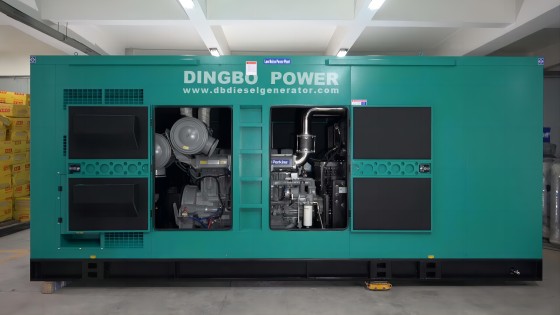Generators can produce reliable electric power to meet various needs and have become an indispensable part of our lives. With the increasing awareness of environmental protection, people pay more attention to the emissions of diesel generators. In this article, we’ll show what the diesel generator set emissions are as well as diesel generator environmental impacts and how to reduce the emissions.
What are the emissions from diesel generator sets?
Diesel generators produce a variety of exhaust emissions during operation, including particulate matter (PM), nitrogen oxide (NOx), carbon dioxide (CO2), carbon monoxide (CO), hydrocarbons (HC), volatile organic compounds (VOCs), non-methane hydrocarbons (NMHC), etc.
PM, also called particle pollution, is basically soot which is attributed to incomplete burning of diesel fuel. Typically it can be trapped on a filter during low load operation when the engine isn't getting sufficient oxygen.
NOx emissions are mainly composed of NO molecules and a small amount of NO2, and other oxides of nitrogen, which are typically created during combustion processes. NOx usually forms at high in-cylinder temperatures during high engine load.

CO2 is produced during fuel combustion. Diesel generator sets produce energy by burning fossil fuels like diesel, which will also produce CO2 emissions and other pollutants. CO2 is known as one of greenhouse gas.
CO is a product of imperfect combustion. CO emissions are often indicators of incomplete combustion and potential operational problems.
HC is organic compound consistently entirely of hydrogen and carbon, which forms due to incomplete combustion. Most unburned hydrocarbon emissions arise from fuel droplets that were transported or injected into the quench layer during combustion.
VOCs are primarily hydrocarbons but may include other compounds. The VOCs emitted from diesel engine are mostly alkane and aromatic, and benzene and tetrahydrofuran have the highest emission ratios.
NMHC is the sum of all hydrocarbon air pollutants except methane. It is produced due to incomplete combustion, which is mainly dependent on fuel composition.
What are the environmental impacts of diesel generator set emissions?
Generators that run on diesel engines provide reliable emergency power, however, they are not perfect. Diesel generator sets produce carbon dioxide, nitrogen oxide, particulate matter, and other dangerous exhausts that release into the atmosphere, which can have a negative environmental impact. These emissions not only pollute the environment, but may also have a negative impact on human health. For example, PM can affect air quality and the climate and NOx is damaging to vegetation and ozone. Both of them can result in respiratory and other illnesses. The greenhouse gases produced by diesel fuel combustion contribute to climate change. Some old models of diesel generators cam also cause noise pollution.
Despite these problems, diesel generator sets also have environmental benefits, which make them still a great choice for many customers all over the world. For instance, diesel engine generators can provide people who live in rural areas or work in remote locations where there is no access to the power grid with a reliable source of electricity. They can generate electricity during power outages and keep people comfortable and safe, which improves the quality of life for people. In addition, many of the advances have occurred in recent years and modern models of power generation sets are better for the environment.
Thus, diesel generator environmental impacts are complicated. Though the emissions of diesel generator sets impact the air quality to some extent, diesel-powered gensets also have positive environmental impacts.
How can we reduce diesel generator emissions?
Manufacturers of diesel generator sets continually improve the environmental performance of their products by using a variety of technologies to meet regulatory requirements and market sustainability expectations. These emissions reduction technologies mainly include exhaust gas recirculation (EGR), selective catalytic reduction (SCR) , diesel exhaust fluid (DEF) and ultra-low sulfur diesel (ULSD) and so on. These improvements enables the diesel engines to use cleaner-burning fuels and have a more efficient combustion, which can effectively reduce pollutants emitted by the engines and pollutants in the engines’ exhaust streams.
In addition to the sophisticated emissions reduction technologies, diesel generators should also be regularly maintained to ensure they operate efficiently and smoothly when needed. Follow the manufacturer’s manual and guidelines to make sure your generator is properly maintained. Proper maintained diesel generator sets can reduce wet stacking and other potential problems, which ultimately reduce emissions.
Conclusion
Diesel-run generators create carbon monoxide and other air pollutants such as particulate matter and nitrogen oxides, which can have negative impacts on the environment. However, increasingly emissions reduction technologies are evolving to make the diesel gensets have better environmental performance and meet stricter regulations. Bear in mind that the environmental impacts of diesel generator sets can also be reduced and managed with correct generator maintenance.
Dingbo Power, founded in 2006, is a professional manufacturer of diesel generators. We are one of the leading power generation one-stop solution providers in China. Our products are ISO-certified and CE-certified and have strong comparative advantages in terms of performance, price, after-sales service and delivery time. For more help choosing the perfect power generation set for your home or business, please contact us today.
Comments
Post a Comment